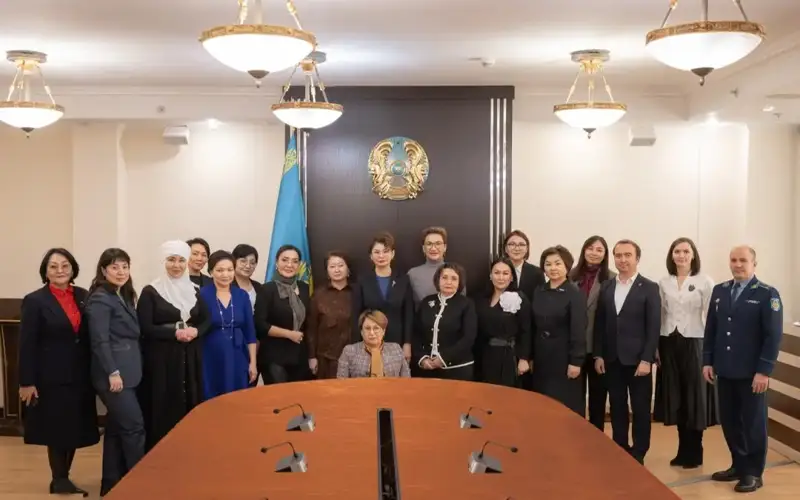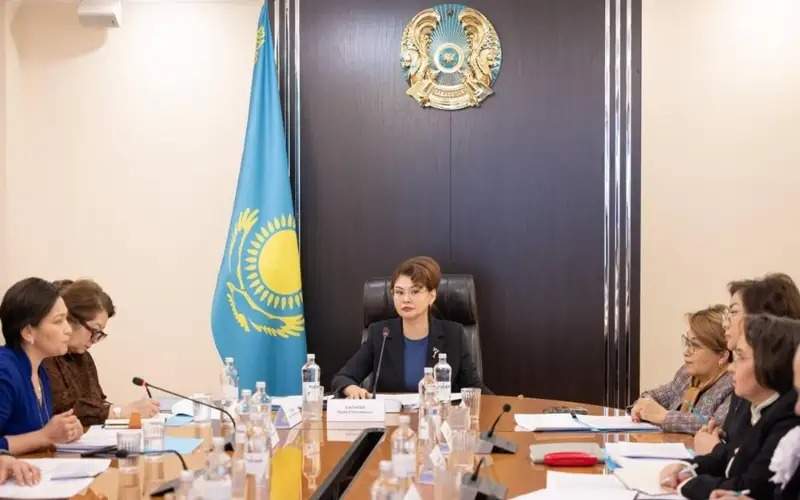National Commission for Women’s Affairs, Family and Demographic Policy sums up work in 2023
The National Commission for Women’s Affairs and Family and Demographic Policy under the Kazakh President summed up its work in the past year and outlined its tasks for 2024 today in Astana, Kazinform News Agency cites the press service of the Kazakh ministry of culture and information.

Opening the meeting, Aida Balayeva, chair of the National Commission for Women’s Affairs and Family and Demographic Policy under the Kazakh President, noted that the Kazakh Head of State signed the decree to rotate the members of the Commission.
She thanked the outgoing members of the Commission for productive cooperation and introduced its new members, setting a number of tasks before them.
Among the new members are Lyazzat Kaltayeva, Tilektes Adambekov, Alfiya Adiyeva, Renat Zulkhairov, Sholpan Karinova, Elmira Karimova, and Muslim Khassenov.
The year 2023 was the productive for the Commission. In accordance with the priorities outlined by the Head of State, the National Commission’s work was focused on the development of a wide range of topical issues in the field of protection of rights of women and children and became an in-demand dialogue platform between the government, the civil society, and international organizations.
With the participation of the experts of the Commission, the social code was developed; changes were made to the code on administrative offences and the criminal code of Kazakhstan. The bill on introduction of changes and additions to some legislative acts of Kazakhstan to ensure the rights of women and safety of children was designed, said Balayeva.

In her words, in 2023, the practice of visits of the Commission’s expert groups to the regions for comprehensive analysis of issues, assessing regional realities, as well as development of solutions to pressing issues was implemented.
Following the monitoring and expert analysis, a number of initiatives to ensure the safety of children in private preschool facilities and summer camps, to prevent harassment as well as bullying and suicides among children were developed.
The One Stop Service project was launched to provide free-of-charge legal and metal support to violence victims.
Seven socially significant projects, of which three charity ones, were carried out together with Samruk Kazyna, including the IT-Aiel project with Astana hub and Tomiris project.
Another successful project was the Salamatty Kazakhstan Train, launched to provide medical examination as well as medical, mental, legal and mediation assistance to citizens residing in remote areas and villages.
The National Consortium bringing together 12 research organizations dealing with family, gender policy and demography was set up.
The women’s entrepreneurship development centers, family support centers as well as crisis centers for violence victims were opened across the regions.
Special attention was paid to the tasks to carry out the international commitments in the field of family and gender policy and development of international cooperation.
In conclusion, Balayeva outlined the current agenda of the National Commission’s activity, including top priorities such as the task of strengthening legal culture and zero tolerance to lawbreakers, developing public discussions with different target groups, enhancing the moral and family values, expanding the rights and opportunities of women.
